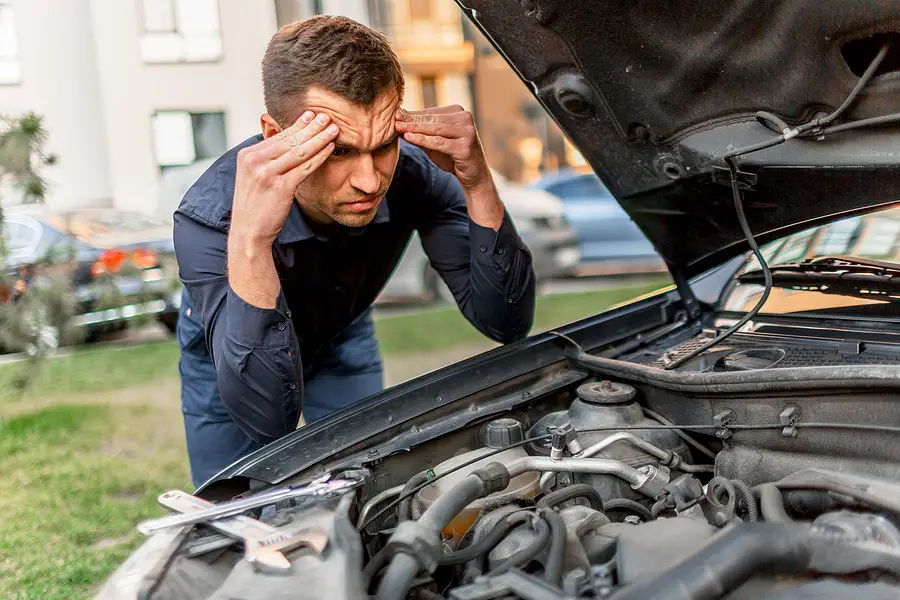Keeping your car in good condition isn’t just about making sure it looks good on the road—it’s about ensuring it runs safely and efficiently. But how do you know when your car is due for servicing? It’s a crucial question for every car owner. A well-maintained car can save you time, money, and a lot of stress down the line. Let’s delve into the signs that indicate your car is due for a maintenance.
Understanding Your Car’s Service Schedule
Your car’s service schedule is often outlined in the owner’s manual. This schedule provides a guideline on when certain services should be performed based on mileage or time intervals. Regular maintenance typically includes oil changes, tire rotations, brake inspections, and fluid checks. By following this schedule, you can preempt many common issues that could lead to bigger problems.
How Do You Know When Your Car Is Due For Servicing?
There are various kind of signs that can indicates that your car needs servicing. Here are the common signs that tells you that your car is due for service.
Dashboard Warning Lights
Modern cars are equipped with a plethora of sensors and warning systems. These dashboard warning lights are your car’s way of telling you something’s not right. If you see the “Check Engine” light or other warning lights, it’s time to get your car looked at. Ignoring these lights can lead to more severe issues down the road.
Unusual Noises
Cars make noise, but some sounds indicate problems. Squealing brakes might mean the brake pads need replacing. A knocking sound from the engine could suggest worn bearings or other internal issues. If you notice any unusual noises, it’s a sign that your car might need servicing soon.
Vibrations and Pulling
If your car starts to vibrate or pull to one side while driving, it could be a sign of issues with the tires, alignment, or suspension. These problems can affect your car’s handling and safety. Addressing them promptly can prevent more extensive damage.
Fluid Leaks
Your car relies on several fluids to operate smoothly, including engine oil, transmission fluid, brake fluid, and coolant. If you notice puddles under your car, it’s a sign of a leak. Different fluids have distinct colors and textures, so identifying the type of leak can help diagnose the issue.
Poor Fuel Efficiency
If you find yourself filling up your gas tank more often than usual, it might be time for a tune-up. Poor fuel efficiency can be caused by a range of issues, from clogged air filters to failing spark plugs. A mechanic can help pinpoint the problem and restore your car’s efficiency.
Difficulty Starting
If your car struggles to start, it could be due to a weak battery, faulty starter, or fuel system problems. Regular servicing can catch these issues before they leave you stranded. Replacing a battery or starter is much simpler than dealing with a breakdown.
Braking Issues
Brakes are one of the most critical components of your car. If you notice a spongy brake pedal, longer stopping distances, or grinding noises, it’s crucial to get your brakes checked immediately. Brake pads and rotors wear out over time and need regular inspection and replacement.
Exhaust Smoke
Different colors of exhaust smoke can indicate various problems. Blue smoke suggests oil burning in the engine, while white smoke can indicate coolant leakage. Black smoke usually means excess fuel is being burned. Any unusual smoke should prompt a visit to the mechanic.
Overheating

If your car’s temperature gauge frequently rises into the red zone, or you see steam coming from under the hood, your engine is overheating. This can be caused by several issues, such as a failing radiator, water pump, or thermostat. Addressing overheating quickly is crucial to avoid severe engine damage.
Worn Tires
Tires are your car’s connection to the road, and they wear out over time. Uneven tread wear, bulges, or frequent loss of air pressure are signs your tires need attention. Regular tire rotation and alignment checks can extend their lifespan and improve your car’s safety and performance.
Steering Issues
If your steering feels loose or if you notice excessive play in the steering wheel, it’s time for a check-up. Steering problems can stem from issues with the power steering system, suspension, or alignment. Prompt servicing can prevent these issues from escalating into major repairs.
Regular Oil Changes
Oil is the lifeblood of your engine. Regular oil changes are essential to keep your engine running smoothly. Over time, oil breaks down and becomes less effective at lubricating engine parts. This can lead to increased friction, overheating, and even engine failure. Following your car’s recommended oil change schedule is one of the simplest ways to keep it in top condition.
Battery Maintenance
Car batteries typically last between three to five years. If your battery is older or you’re experiencing electrical issues like dim headlights or slow cranking, it might be time for a replacement. Regular battery checks can ensure you’re not caught off guard by a dead battery.
Inspecting Belts and Hoses
Belts and hoses play vital roles in your car’s operation. The timing belt, for example, controls the timing of the engine’s valves, while the serpentine belt drives multiple peripherals like the alternator and power steering pump. Over time, these belts can wear out and crack. Hoses can become brittle and leak. Regular inspections can catch these issues early.
Seasonal Checks
Seasonal changes can affect your car’s performance. Before winter, it’s wise to check the antifreeze levels, battery, and tires. In the summer, ensure your air conditioning system is working correctly and that the cooling system is in good condition. Preparing your car for seasonal changes can enhance its reliability and comfort.
Comprehensive Inspections
Apart from regular maintenance, scheduling comprehensive inspections at least once a year can help identify potential problems. These inspections often cover a wide range of components, including brakes, suspension, steering, and electrical systems. A thorough inspection can uncover issues that might not be immediately noticeable but could affect your car’s performance and safety.
Keeping a Maintenance Log
Keeping a detailed maintenance log can help you track what services have been performed and when. This can be particularly useful if you have multiple vehicles or if you plan to sell your car in the future. A well-documented maintenance history can boost your car’s resale value and assure potential buyers of its good condition.
DIY Checks
While many car maintenance tasks require a professional mechanic, there are several checks you can do yourself. Checking tire pressure, oil levels, and fluid levels are simple tasks that can be done regularly. Familiarizing yourself with these basic checks can help you spot potential issues early and maintain your car’s health.
Choosing the Right Mechanic

Finding a reliable mechanic is crucial for maintaining your car. Look for certified professionals who specialize in your car’s make and model. Reading reviews and getting recommendations from friends or family can help you find a trustworthy service provider. A good mechanic can keep your car running smoothly and give you peace of mind.
The Role of Technology in Car Maintenance
Modern technology has revolutionized car maintenance. Many new cars come equipped with telematics systems that monitor various aspects of your car’s health and notify you of potential issues. Additionally, apps and devices that connect to your car’s onboard diagnostics can provide real-time data and maintenance reminders. Leveraging these technologies can simplify car maintenance and ensure timely servicing.
Understanding Manufacturer Recalls
Manufacturers occasionally issue recalls for specific models due to safety or performance concerns. Staying informed about recalls for your vehicle is essential. Recalls are typically addressed free of charge by authorized dealerships. Addressing recalls promptly can prevent potential safety hazards and keep your car in optimal condition.
Importance of Preventive Maintenance
Preventive maintenance is about more than just following a schedule—it’s about keeping your car running efficiently and avoiding costly repairs. Small issues can quickly escalate into major problems if left unaddressed. By investing in regular maintenance, you can extend your car’s lifespan, enhance its performance, and ensure your safety on the road.
The Environmental Impact of Regular Maintenance
Regular car maintenance also has environmental benefits. Well-maintained cars tend to be more fuel-efficient and produce fewer emissions. Ensuring your car is in good working order can help reduce your carbon footprint and contribute to a healthier environment.
Car Maintenance Myths Debunked
There are many myths surrounding car maintenance. For instance, some believe that you only need to change your oil every 3,000 miles, regardless of your driving conditions. In reality, modern oils and engines can often go longer between changes. Another common myth is that premium fuel will always improve your car’s performance, which is not necessarily true for all vehicles. Educating yourself about these myths can help you make informed decisions about car care.
The Future of Car Maintenance
The automotive industry is rapidly evolving, with advancements in electric vehicles, autonomous driving, and smart technologies. These changes will likely impact how we approach car maintenance. Electric cars, for example, have fewer moving parts than traditional combustion engines, potentially reducing the need for certain types of maintenance. Staying informed about these trends can help you adapt to the future of car care.
Conclusion
Knowing when your car needs servicing is key to ensuring it remains reliable, efficient, and safe. By paying attention to warning signs, following the manufacturer’s maintenance schedule, and seeking professional help when necessary, you can keep your car in top condition. Regular maintenance not only extends the life of your vehicle but also enhances your driving experience and safety on the road. So, keep an eye on those dashboard lights, listen for unusual noises, and don’t ignore those little symptoms —your car will thank you for it.

